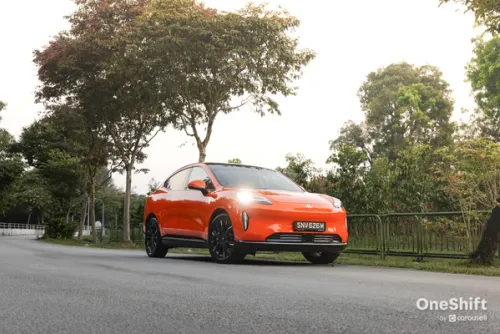Paris Motor Show: Ford Focus ST
Ford delivers on promise to introduce a global performance version of the new Focus: next-generation 250PS Focus ST previewed at the Paris Motor Show


The exciting next-generation Ford Focus ST makes its global debut at the 2010 Paris Motor Show, providing an early preview of the new high-performance model which will be introduced around the world in 2012.
Ford's first global high performance model and a star attraction for Ford in Paris, the powerful new Focus ST show car was revealed today by Alan Mulally, Ford’s president and CEO, and Stephen Odell, chairman and CEO, Ford of Europe.
This range-topping Focus will be completely true to Ford's ST model heritage, offering driving enthusiasts an intoxicating cocktail of exhilarating performance and handling, an addictive sound and muscular sports design.
"The ST will be the performance flagship of our new Focus range, and we are excited to provide our enthusiast customers with an early preview in Paris," said Gunnar Herrmann, Ford Motor Company's global C car vehicle line director. "The ST represents an ultimate expression of Focus driving quality and performance and we are confident that the new model will strengthen the reputation of Ford's ST heritage among enthusiast drivers and attract new fans as well."
At the heart of the appeal of the next-generation Focus ST is a high-output 250PS derivative of the efficient and advanced new 2.0-litre Ford EcoBoost four-cylinder petrol engine.
Succeeding the turbocharged 2.5-litre five-cylinder unit of the current European model, this unique 250PS Ford EcoBoost engine is being specially developed for the new Focus ST to ensure that the car gets the muscular performance – and the inspirational sound – which it deserves. It also marks the first application of the four-cylinder Ford EcoBoost engine in a high performance model.
Compared to the 2.0-litre Ford EcoBoost engine used in other Ford vehicles, the 250PS unit features re-designed intake and exhaust systems and a unique engine calibration to deliver the desired level of power and responsiveness. The engine retains the strong torque delivery which is a feature of Ford EcoBoost designs, with a broad, flat torque curve offering a maximum output of 360Nm.
One of a completely new generation of downsized, high-efficiency, low-CO2 petrol engines from Ford, the 2.0-litre Ford EcoBoost is a lightweight, all-aluminium design which combines three technologies – high-pressure direct injection, low-inertia turbocharging and twin independent variable cam timing – to create an advanced combustion system which brings new levels of performance and fuel efficiency to petrol engines in this power range.
This ultra efficient 250PS engine therefore not only delivers over 10 per cent more power and torque than the current 2.5-litre unit, it is also estimated to reduce fuel consumption and CO2 emissions by more than 20 per cent.
The standard transmission for the Focus ST is a 6-speed manual gearbox, optimised with more sporting ratios carefully matched to the performance characteristics of the engine.
Compared to the standard Focus, the ST model will feature a comprehensive range of enhancements including a chassis lowered by 10mm, a substantially different variable ratio steering system, high performance brakes and unique suspension tuning, that will enable the vehicle to deliver the acclaimed ST handling agility and poise.
Naturally, the ST will also benefit from the performance improvements being delivered by the next-generation Focus vehicle architecture. Features like a stronger, stiffer body structure, optimised front and rear suspension system designs, and a new electric power assisted steering (EPAS) system all contribute to superior vehicle dynamics and improved refinement.
Focus ST drivers will also be able to take advantage of the unprecedented level of smart new technologies incorporated in Ford’s latest global C car platform, including advanced new driver assistance, powertrain, chassis and active safety features.
Many of these features, such as the advanced new Torque Vectoring Control system – which acts like a torque vectoring differential to enhance cornering stability and agility – have a direct impact on improving driving quality to an even higher level.
Credits: wilswong


Get the Best Price for your used car
from 500+ dealers in 24 hours

- Convenient and Hassle-Free
- Consumer Protection
Transparent Process
With No Obligation








